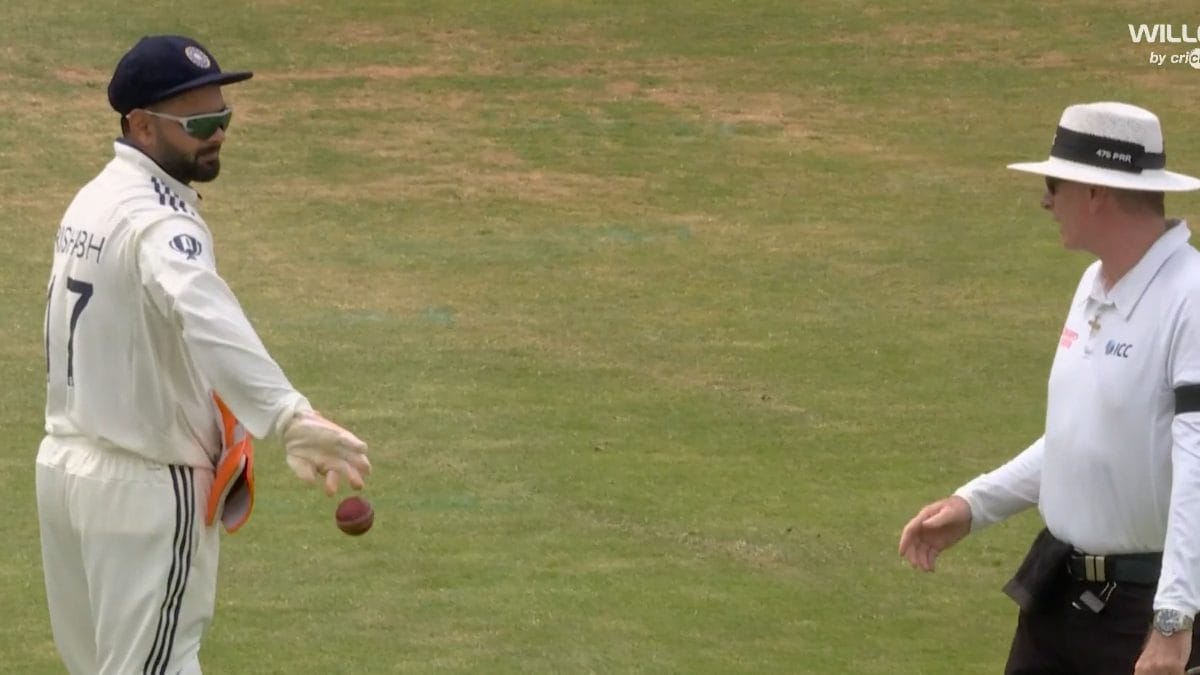

Rishabh Pant, the Indian wicketkeeper-batsman and vice-captain, is under scrutiny following an on-field incident during the first Test against England at Headingley. Pant's visibly frustrated reaction to an umpire's decision not to change the ball has sparked debate about whether he will face sanctions from the International Cricket Council (ICC) for breaching the ICC's Code of Conduct.
The incident occurred on Day 3 of the Test, shortly after Harry Brook hit Mohammed Siraj for a boundary. Pant, seemingly unhappy with the condition of the ball, approached umpire Paul Reiffel and requested a ball change. Reiffel inspected the ball using a ball gauge but found it satisfactory and denied Pant's request. Pant continued to argue his case, but Reiffel remained unmoved. In a fit of frustration, Pant threw the ball back-handed onto the ground before walking away.
Pant's actions have opened him up to potential penalties under the ICC Code of Conduct. Article 2.8 of the code addresses "showing dissent at an umpire's decision," which can be classified as a Level 1 or Level 2 offense. Specifically, Pant could be charged under clause (a) for displaying "excessive, obvious disappointment" or clause (h) for "arguing or entering into a prolonged discussion with the Umpire about his/her decision."
Furthermore, Article 2.9 prohibits "throwing a ball at or near a Player, Player Support Personnel, Umpire, Match Referee or any other third person in an inappropriate and/or dangerous manner during an International match." This offense also carries Level 1 or Level 2 sanctions. Although Pant did not appear to throw the ball at the umpire, the ICC might interpret his actions as an inappropriate display of dissent.
Level 1 breaches typically result in a fine of up to 50% of the match fee and/or one or two demerit points. Level 2 offenses carry more severe penalties, including a fine of up to 100% of the match fee and a suspension.
The incident has drawn varied reactions. Commentator Ravi Shastri suggested Pant's actions stemmed from frustration, while Mark Butcher questioned the need for such behavior, suggesting it may have been an attempt to engage the crowd. Some observers feel that Pant's actions, while perhaps ill-advised, did not warrant significant punishment, especially if there was no intent to show disrespect. Others argue that as a senior player and vice-captain, Pant should be held to a higher standard of conduct.
It's important to remember that umpires' decisions are final and that arguing is not going to change their mind. Moreover, disciplinary measures can be applied to players who behave inappropriately. Unnecessary aggression and bad behavior is not needed in the game.
Similar incidents in cricket have resulted in varied consequences, ranging from warnings and fines to suspensions. In the past, players have been penalized for excessive appealing, verbal abuse, and showing dissent. The ICC's decision in Pant's case will likely consider the specific circumstances, Pant's past record, and the need to maintain standards of player conduct. The match referee will review the incident and determine if Pant's behavior crossed the line. It remains to be seen whether the ICC will take action against Pant and what that action might be.